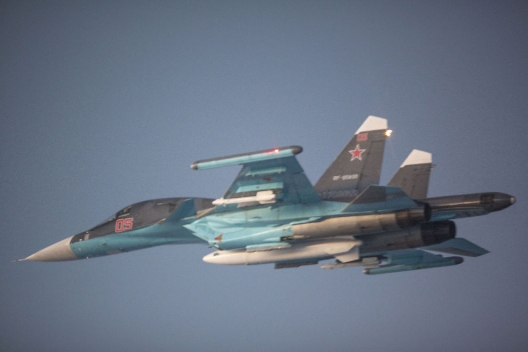 Throughout 2014, an unprecedented number of air space violations and incidents have required NATO Baltic Air Policing to scramble jets in response. Most significantly, there has been a dramatic increase in Russian military exercises in the area. Such air space violations have been equal opportunity bullying, targeting Sweden, Finland, Estonia, Latvia and Lithuania alike. The goal of these increased military activities in or near Nordic/Baltic space is to undo the emergence of a collective defense system in the region.
Throughout 2014, an unprecedented number of air space violations and incidents have required NATO Baltic Air Policing to scramble jets in response. Most significantly, there has been a dramatic increase in Russian military exercises in the area. Such air space violations have been equal opportunity bullying, targeting Sweden, Finland, Estonia, Latvia and Lithuania alike. The goal of these increased military activities in or near Nordic/Baltic space is to undo the emergence of a collective defense system in the region.
In light of Putin’s goal of rebuilding a sphere of privileged interest along the country’s periphery, Sweden and Finland are increasingly important to NATO’s defense planning. Conversely, any Russian naval planning in the Baltic must factor in a way to neutralize them. For NATO in particular, Sweden and Finland offer a critical link to any planning for operations involving the Baltic States. Hence, any decisions taken by the two on possible NATO membership—or even increasing marginally the scope of their coordination and cooperation with NATO—would have a positive ripple effect on the overall security position of the three Baltic NATO allies and on Central European security. To put it bluntly, if Russia can take Sweden and Finland out of the NATO ledger, any conversation about Article 5 defense for the Baltics becomes a highly theoretical proposition. Hence, Moscow’s ploy to pressure the Scandinavians to stay out of its power play in the Baltic has been underway for several years now, and dates prior to the move to sever Crimea from Ukraine. . . .
Russian planning, exercises, and patterns of harassment aim to convey to the Scandinavians that, should Russia choose to move against them, it would target their territory as well. The goal is to undercut the confidence among NATO members along the northeastern flank that the alliance would in fact fulfill its Article 5 obligations in a crisis.
By targeting and pressuring Sweden and Finland, Russia seeks to, on the one hand, obstruct any move on the part of the Swedes and Finns for full membership in NATO, while at the same time convey a strong message to the Balts that in a crisis their Article 5 security guarantees cannot be taken for granted, and that they will be left to their own resources. If Moscow succeeds, it will weaken collective defense in the region, undercutting NATO’s credibility in the process.
Andrew A. Michta is the M. W. Buckman Professor of International Studies at Rhodes College and an adjunct fellow at the Center for Strategic and International Studies (CSIS).
Image: Russian Su-34 Fullback fighter bomber off the coast of Norway in late October (photo: Norwegian Armed Forces)
